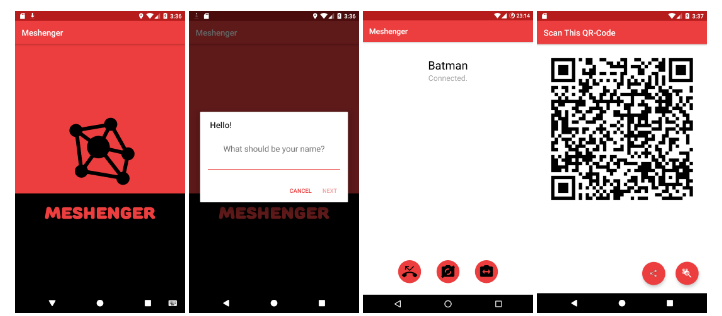Meshenger: P2P Voice/Video Phone App With Network Support
Table of Content
Meshenger is a P2P Voice- and video phone calls without the need for accounts or access to the Internet. There is no discovery mechanism, no meshing and no servers. Just scan each other's QR-Code that will contain the contact's IP address. This works in many local networks such as community mesh networks, company networks or at home.
As contacts are shared via QR-Code. They contain a name, a public key and a list of MAC/IP/DNS addresses. By default, only a single MAC address is transferred and used to create an IPv6 link local address (among others) to establish a connection. This does not even need a DHCP server. The exchanged public key is used to authenticate/encrypt signaling data to establish a WebRTC session that can transmit voice and video.
Meshenger is written in Kotlin, and it is available only for Android devices, you can download it from F-Droid, Google Play or get an APK file from GitHub.
Features
- The app does not share your info with any third-party service
- Voice and video calls
- No accounts or registration
- Encrypted communication
- Database backup and encryption
- Add custom addresses to reach contacts
- Scan contacts with QR code
- Works on local networks
- Does not contain any ads
- Can work without internet connection.
Screenshots

Download
License
Meshenger is a free open-source Libre project that is released under the GPL-3.0 License.











